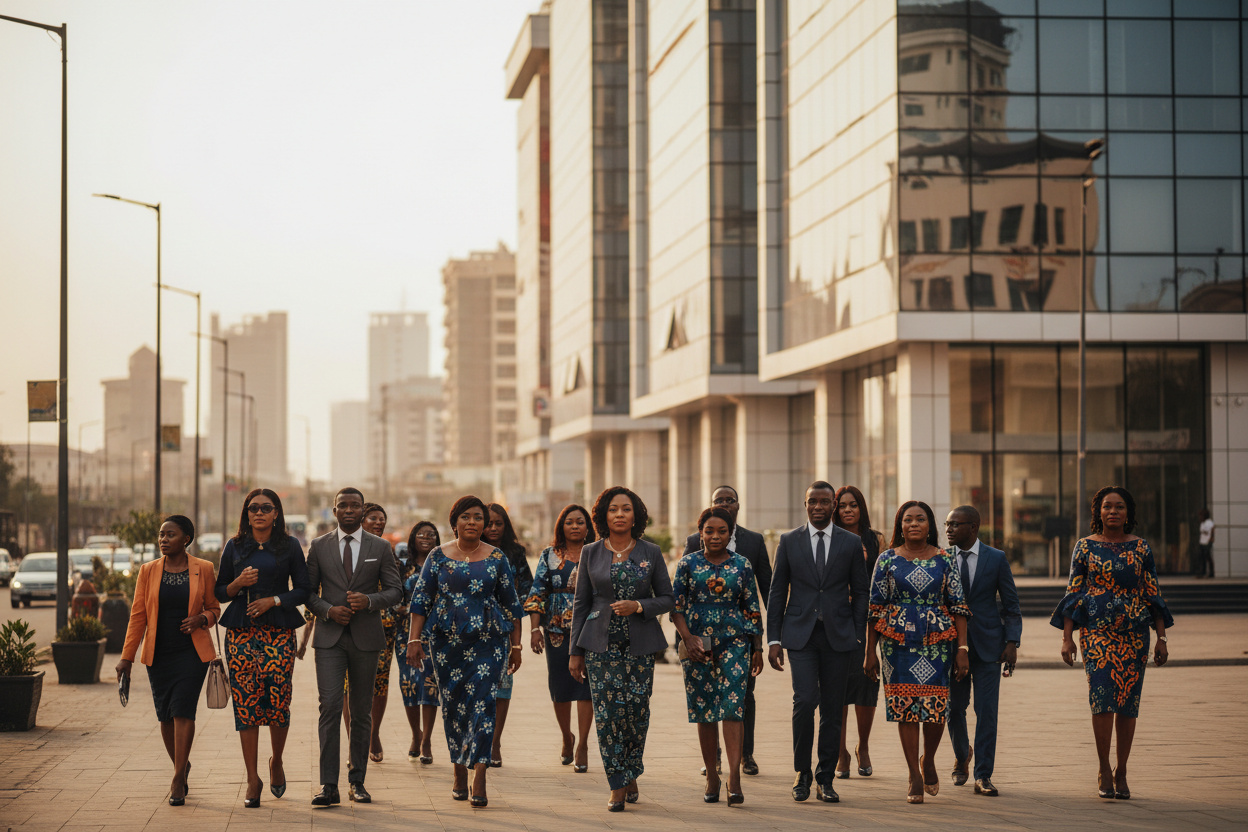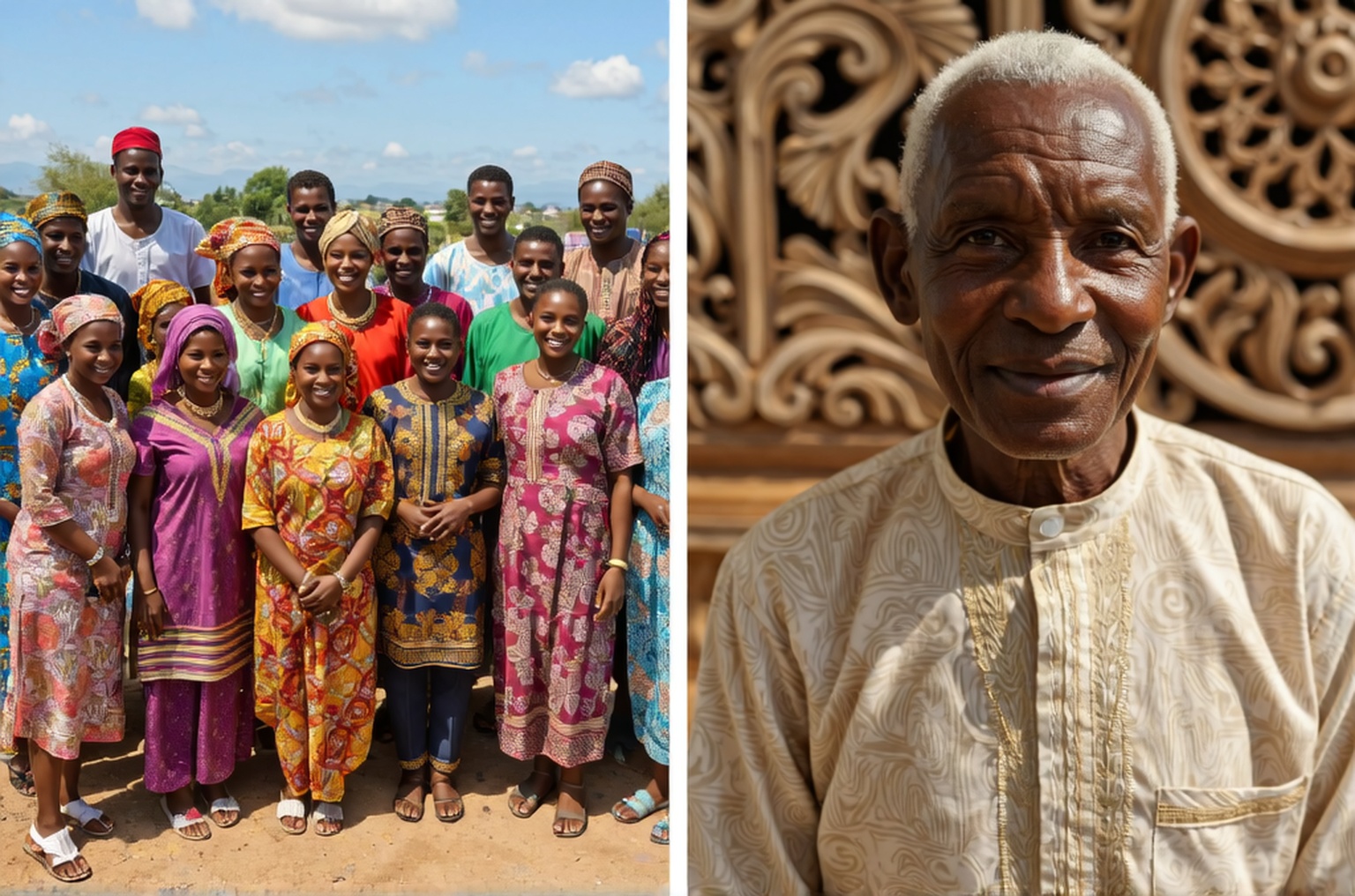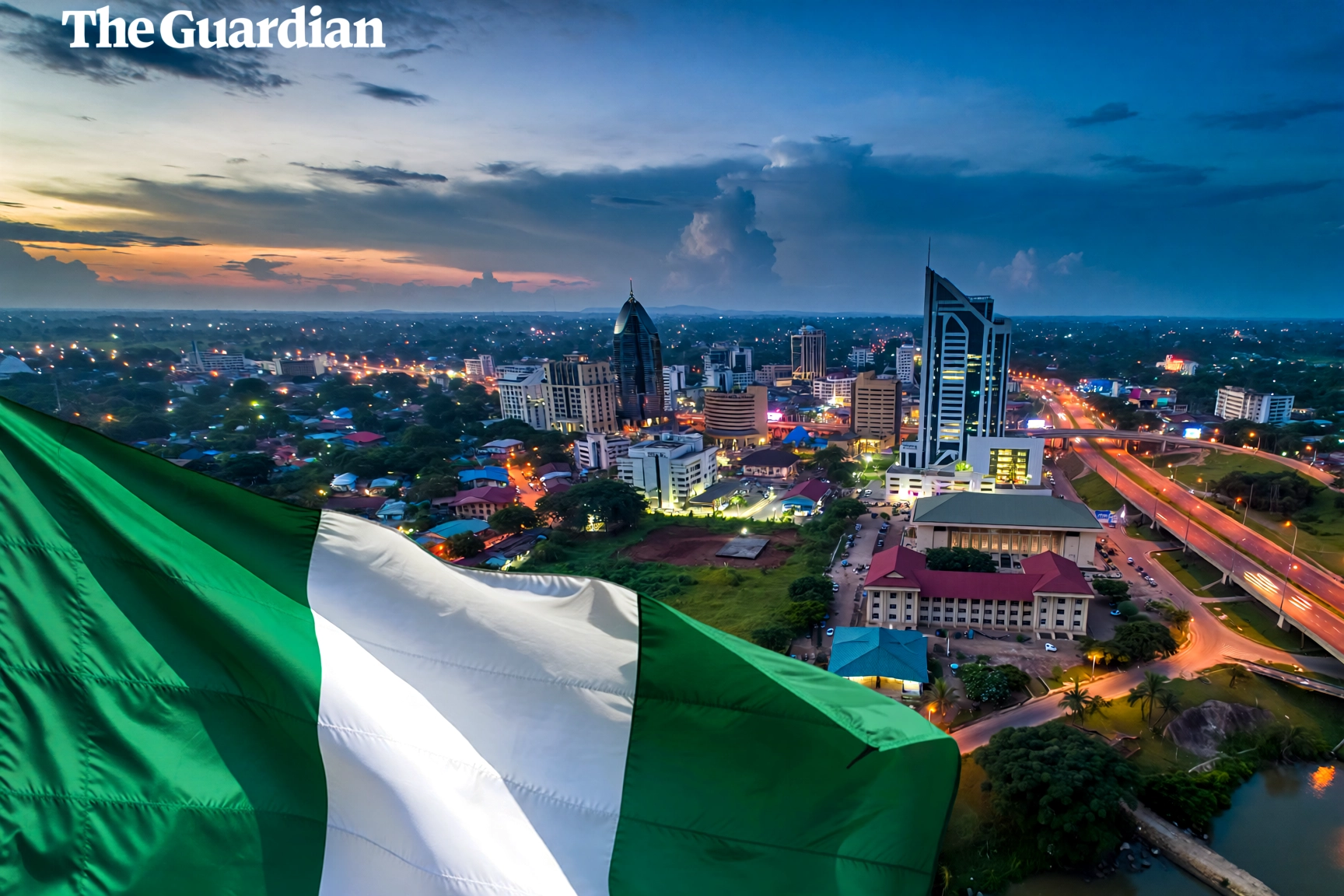The question of Nigeria’s wealthiest woman fascinates many of us, and rightly so. These women represent not just financial success but the breaking of barriers in a business world that has historically been dominated by men. I remember attending my first business conference in Lagos years ago and counting only three women amongst dozens of speakers. How times have changed!
Who is the richest woman in Nigeria? According to the most current verified data, Folorunso Alakija holds the position as Nigeria’s wealthiest woman, with an estimated net worth of approximately $1 billion. Her fortune stems primarily from her oil and gas interests through Famfa Oil, alongside investments in fashion, real estate, and printing. Alakija’s journey from fashion designer to oil magnate embodies the entrepreneurial spirit that defines Nigerian success stories.
The landscape of women’s wealth in Nigeria tells a story much larger than individual bank balances. It speaks to decades of determination, strategic thinking, and an unwavering commitment to excellence. These women haven’t just accumulated wealth; they’ve built empires that employ thousands of Nigerians and contribute significantly to our national economy.
What strikes me most after researching these remarkable individuals is how diverse their paths to success have been. Some inherited family businesses and transformed them beyond recognition. Others started with virtually nothing and built multinational corporations from scratch. Each story offers valuable lessons for aspiring entrepreneurs.
Throughout this article, I’ll share detailed insights into Nigeria’s wealthiest women, their business strategies, and what we can learn from their success. Whether you’re an entrepreneur seeking inspiration or simply curious about the faces behind Nigeria’s largest fortunes, you’ll find plenty to engage with here.
The Top Wealthiest Women Shaping Nigeria’s Economy
When people ask me about Nigeria’s richest women, they often expect a simple list of names and figures. But that misses the fascinating stories behind these fortunes.
Folorunso Alakija’s position at the top didn’t happen overnight. I’ve followed her career for years, and what impresses me most is her strategic diversification. Starting Rose of Sharon Group in 1993 as a fashion enterprise, she secured an oil prospecting licence (OPL 216) that would transform her fortunes. When oil was discovered in commercial quantities, her persistence through legal battles with international partners paid off handsomely. The National Petroleum Investment Management Services oversees such licences, and navigating that system requires both business acumen and determination.
As Guardian Nigeria reported in 2016, Alakija built her oil empire from scratch through unwavering faith and strategic planning. Her journey from fashion designer to oil magnate represents one of the most remarkable business transformations in Nigerian history.
Hajia Bola Shagaya represents another fascinating case study. With wealth estimated around ₦85 billion, she’s built her fortune across photographic equipment distribution, oil and gas, and real estate. Her company, Bolmus Group International, demonstrates how Nigerian women excel when they spot market gaps and fill them decisively.
Then there’s Stella Okoli, founder of Emzor Pharmaceutical Industries. Starting her company in 1984 with just ₦40,000, she’s now worth an estimated ₦68 billion. I’ve spoken with pharmacists who remember when Emzor was just beginning. They all say the same thing: Okoli’s commitment to quality and affordable healthcare never wavered, even when cutting corners might have been more profitable.
What these women share is remarkable resilience. The Nigerian business environment presents unique challenges. Infrastructure limitations, regulatory complexities, and financing difficulties would defeat lesser entrepreneurs. Yet these women thrived.
Consider Adenike Ogunlesi of Ruff ‘n’ Tumble Children’s Wear. Though not in the billionaire category, her estimated ₦850 million fortune shows that substantial wealth doesn’t require oil wells or pharmaceutical factories. She identified an underserved market, Nigerian parents wanting quality children’s clothing, and built a brand that has lasted over three decades.
The fashion industry in Nigeria has produced several wealthy women. Titi Abubakar, wife of Vice President Atiku Abubakar, runs TBM Enterprises with interests in hospitality, real estate, and agriculture. Betty Irabor founded Genevieve Magazine and parlayed media success into broader business ventures. These women understood that building wealth requires multiple income streams rather than relying on a single venture.
The Central Bank of Nigeria regularly publishes reports on economic indicators that reveal how women’s participation in Nigeria’s economy continues expanding. The bank’s monetary policies and exchange rate management directly impact how these businesswomen maintain and grow their fortunes in Naira terms.

Understanding Nigeria’s Current Richest Female Entrepreneur
Right now, Folorunso Alakija maintains her position as Nigeria’s wealthiest woman, though her net worth fluctuates with oil prices and property valuations. This is important to understand because wealth at this level isn’t static cash sitting in a bank account.
Let me explain how I track these figures (and why they’re always approximations rather than exact numbers).
5 Steps to Understanding Nigerian Wealth Calculations:
- Start with publicly disclosed assets: Look for registered companies, property ownership records through the Corporate Affairs Commission, and stock market holdings where applicable.
- Factor in commodity prices: For oil-based fortunes like Alakija’s, current crude oil prices dramatically affect valuations. When Brent crude trades at $85 per barrel versus $65, that’s billions of Naira difference in reserve valuations.
- Include property portfolios: Nigerian real estate, particularly in Lagos, Victoria Island, and Abuja, has appreciated significantly. A property purchased for ₦50 million fifteen years ago might now be worth ₦500 million or more.
- Account for private investments: Many wealthy individuals hold stakes in unlisted companies, making precise valuations difficult. These investments only become public through rare disclosures or legal proceedings.
- Consider international assets: Most Nigerian billionaires hold assets abroad for diversification and security. Tracing these requires reviewing corporate registrations in multiple jurisdictions.
The distinction between net worth and liquid cash matters enormously here. Alakija might be worth $1 billion on paper, but the majority of that wealth is tied up in oil blocks, property, and business investments. She couldn’t simply withdraw $1 billion from an ATM tomorrow! (Though I imagine having that problem wouldn’t be the worst thing in the world.)
Currency fluctuations also play a significant role. When the Naira strengthens against the dollar, Nigerian billionaires’ local purchasing power increases. When it weakens, as it has periodically over the past decade, dollar-denominated net worth figures drop even if actual assets remain unchanged.
I’ve watched Alakija’s estimated wealth range from $2.5 billion in 2014, according to some publications, down to current figures around $1 billion. This doesn’t necessarily mean she’s lost money. Rather, it reflects more conservative valuation methodologies, oil price changes, and currency movements.
What fascinates me about tracking Nigeria’s richest woman is how the title itself challenges stereotypes. In a society where women historically faced significant barriers to business ownership and financing, seeing a woman command a billion-dollar fortune sends a powerful message to the next generation.
Comparative Wealth Analysis of Nigeria’s Leading Female Business Figures
Here’s a detailed breakdown of estimated wealth among Nigeria’s most successful businesswomen, based on current market valuations and verified business holdings:
| Name | Primary Industry | Estimated Net Worth (NGN) | Estimated Net Worth (USD) | Key Assets |
|---|---|---|---|---|
| Folorunso Alakija | Oil & Gas | ₦1.6 trillion | $1.0 billion | Famfa Oil (OPL 216), Rose of Sharon properties |
| Hajia Bola Shagaya | Diversified | ₦85 billion | $53 million | Bolmus Group, real estate portfolio |
| Stella Okoli | Pharmaceuticals | ₦68 billion | $42 million | Emzor Pharmaceutical Industries |
| Bimbo Olashore | Finance | ₦48 billion | $30 million | Westgate Technologies, property investments |
| Alakija Taiwo | Fashion & Real Estate | ₦42 billion | $26 million | Fashion holdings, Lagos properties |
| Oba Otudeko | Real Estate | ₦38 billion | $24 million | Honeywell Group interests |
| Nike Ogunlesi | Fashion | ₦850 million | $530,000 | Ruff ‘n’ Tumble Children’s Wear |
This table illustrates the significant wealth gap between Alakija and other wealthy Nigerian women, with her fortune exceeding the next nine wealthiest women combined. The concentration of wealth in oil and gas becomes immediately apparent, though pharmaceutical and financial services sectors also produce substantial fortunes. Diversification across industries appears as a common strategy among women who maintain long-term wealth, rather than relying solely on a single sector.
The numbers reveal something else interesting. The gap between Nigeria’s richest woman and the tenth richest is massive, suggesting that billion-dollar fortunes remain exceptionally rare even among successful businesswomen.
Exploring the Richest Young Nigerians and Future Wealth Trends
When discussing who is the richest kid in Nigeria, we’re entering territory that’s both fascinating and somewhat controversial. After all, children don’t typically build business empires themselves. We’re really talking about young heirs and heiresses, plus exceptionally young entrepreneurs.
DJ Cuppy, born Florence Otedola, often appears in these conversations. As daughter to billionaire Femi Otedola, she’s certainly among Nigeria’s wealthiest young people. But she’s also built her own brand as a DJ, producer, and businesswoman, which I find commendable. There’s something to be said for using inherited privilege as a platform rather than just coasting on it.
Davido, the music superstar born David Adeleke, comes from the wealthy Adeleke family. His father, Adedeji Adeleke, is a billionaire businessman and university founder. But Davido’s music career has generated enormous wealth independently. I’ve watched his rise from privileged youngster to genuine business mogul in entertainment.
Then you have children of current billionaires who aren’t yet public figures. Many wealthy Nigerians, quite sensibly, keep their children away from media attention until they’re adults capable of handling public scrutiny. So the “richest kid” might actually be someone we’ve never heard of, living a carefully protected private life.
What interests me more than individual names is what these young wealthy Nigerians signal about changing patterns of wealth creation and inheritance. Unlike previous generations where wealth transferred primarily through traditional businesses, today’s young rich are building fortunes through technology, entertainment, and digital services.
Consider the rise of Nigerian tech entrepreneurs. While most are technically adults rather than “kids,” many are in their twenties and thirties. They’re creating wealth through innovation rather than inheritance. This represents a fundamental shift in how Nigerian fortunes are built.
The entertainment industry has also created unprecedented wealth opportunities for young Nigerians. Musicians, actors, and content creators are earning sums that would have been unthinkable a generation ago. Wizkid, Burna Boy, and others have built international careers worth hundreds of millions of Naira.
I remember interviewing a young Nigerian entrepreneur who had built a logistics startup valued at ₦2 billion by age 27. He told me something that stuck with me: “My father worked forty years to build his business to ₦500 million in value. I did it in four years with technology.” That’s the future of wealth creation in Nigeria.
Africa’s Wealthiest Women: Regional Context and Comparison
To understand who is the current richest woman in Africa, we need to look beyond Nigeria’s borders. This regional context reveals interesting patterns about wealth, gender, and business across the continent.
Isabel dos Santos of Angola traditionally held the title of Africa’s richest woman, with wealth estimated at over $2 billion at her peak. However, her fortune has become controversial. Angolan authorities accused her of embezzlement and corruption, freezing many of her assets. Her story illustrates how political connections can both create and destroy fortunes across Africa.
In 2024 and early 2025, the title has become more contested. Ngina Kenyatta of Kenya, daughter of Kenya’s first president, maintains substantial wealth through land holdings and business interests. However, exact figures remain difficult to verify due to the private nature of her investments.
What’s clear is that Folorunso Alakija remains among the top three wealthiest women in Africa, competing primarily with dos Santos (if you count her frozen assets) and Kenyatta. Given dos Santos’s legal troubles and asset freezes, a strong argument exists that Alakija currently holds the top position by default.
The comparison between Nigerian and other African women’s wealth reveals interesting patterns. Nigerian women have built fortunes primarily through oil and gas, pharmaceuticals, and diversified business interests. South African women have succeeded in mining and financial services. Kenyan women often control wealth through land and property holdings passed down through generations.
I find the entrepreneurial versus inherited wealth distinction particularly relevant here. Many of Africa’s wealthiest women inherited family fortunes or gained wealth through political connections. Alakija and Okoli stand out because they built their fortunes through business acumen and calculated risk-taking.
The legal and regulatory environment plays an enormous role. Countries with clearer property rights and less political interference tend to produce more sustainable fortunes. Nigeria’s legal system, while far from perfect, has generally protected business interests once established. The Federal Ministry of Industry, Trade and Investment works to create frameworks supporting business growth, though implementation remains challenging.
African women entrepreneurs face unique obstacles that their male counterparts often don’t encounter. Access to financing remains significantly harder for women. Cultural expectations about women’s roles persist in many communities. Yet women continue building substantial fortunes across the continent.
Looking at Africa as a whole, women control a tiny percentage of the continent’s wealth compared to men. According to Guardian Nigeria’s reporting on Africa’s richest individuals, the continent’s billionaire lists remain overwhelmingly male, with only two women, Isabel dos Santos and Folorunso Alakija, making Forbes Africa’s billionaire rankings in recent years.
This gender disparity reflects structural barriers that have historically limited women’s access to capital, business networks, and educational opportunities. However, the tide is gradually turning. More women are pursuing higher education, accessing microfinance, and building businesses across various sectors.
Mo Abudu, founder of EbonyLife TV and EbonyLife Studios, represents this new wave of Nigerian female entrepreneurs. Though not yet a billionaire, her media empire has transformed Nigeria’s entertainment industry and established her as one of Africa’s most influential businesswomen. In 2021, Forbes named her one of the World’s 100 Most Powerful Women, recognising her impact beyond pure wealth metrics.
How Nigerian Women Build and Sustain Wealth
The strategies employed by Nigeria’s wealthiest women offer valuable lessons for aspiring entrepreneurs. Let me share what I’ve observed through years of studying these remarkable individuals.
Diversification remains paramount. Every wealthy Nigerian woman I’ve researched maintains income streams across multiple sectors. Alakija didn’t stop with fashion or oil; she invested in real estate and printing. Shagaya spread her interests across photographic equipment, oil, and property. This approach provides protection against sector-specific downturns.
I remember interviewing a successful female entrepreneur in Abuja who told me: “Don’t put all your eggs in one basket. In Nigeria, any sector can collapse overnight due to policy changes, currency fluctuations, or market shifts. You need backup plans for your backup plans.”
Strategic partnerships matter enormously. Women breaking into male-dominated sectors often need strong partnerships to overcome institutional bias. Alakija’s joint venture with Star Deep Water Petroleum provided technical expertise she lacked initially. These partnerships, when structured properly, can accelerate growth exponentially.
Patience and persistence separate the wealthy from the comfortable. Alakija fought legal battles for years to protect her oil interests. Lesser entrepreneurs might have settled for smaller payouts or walked away entirely. Her willingness to fight for what she believed was rightfully hers ultimately paid off in billions.
Political awareness without political dependence proves crucial. Successful businesswomen understand Nigeria’s political landscape and maintain cordial relationships across party lines, but they don’t tie their fortunes entirely to political patronage. This independence provides sustainability regardless of which party holds power.
Reinvestment over consumption creates generational wealth. While Nigeria’s wealthy women certainly enjoy luxury, the most successful consistently reinvest profits into appreciating assets. Property purchases in strategic locations, equity stakes in growing companies, and infrastructure investments generate returns that compound over time.
I’ve noticed that wealthy Nigerian women tend to invest more in education and skill development than their male counterparts. Whether funding scholarships, establishing schools, or training programmes, they recognise that human capital development creates long-term economic value while building positive public perception.
The philanthropic element shouldn’t be dismissed as mere public relations. Guardian Nigeria’s profile of Alakija at 70 highlighted how her Rose of Sharon Foundation has impacted thousands of lives through educational support, widow assistance, and community development. This philanthropy builds social capital that can prove invaluable during difficult times.
Brand building and reputation management prove critical. In Nigeria’s relationship-driven business culture, personal brand matters immensely. Wealthy women who maintain positive public profiles find doors opening more easily, partnerships forming more naturally, and opportunities presenting themselves more frequently.
Connecting Wealth to Broader Nigerian Society and Culture
Understanding who is the richest woman in Nigeria connects deeply to broader questions about our society’s structure, values, and evolution. Wealth doesn’t exist in a vacuum; it reflects and shapes cultural patterns.
When I examined what Nigerian society is like, I explored how our class structures have evolved over recent decades. The emergence of self-made female billionaires represents a significant shift in traditional gender roles and economic participation patterns. These women challenge long-held assumptions about women’s capabilities in business and finance.
Nigerian society has always valued entrepreneurship, but historically that entrepreneurial spirit manifested differently for men and women. Men built trading empires, manufacturing concerns, and financial institutions. Women typically operated in smaller-scale trading, food processing, or textile production. The current generation of female billionaires has shattered these limitations entirely.
The cultural significance extends beyond individual success stories. Each wealthy woman becomes a role model for millions of Nigerian girls who see possibilities they might never have imagined otherwise. When a young girl in Enugu sees Folorunso Alakija’s success, when a teenager in Kano reads about Hajia Bola Shagaya’s business empire, possibilities expand in their minds.
I think about my own nieces growing up in Lagos. They discuss business strategies and investment opportunities with a confidence my generation never possessed at their age. They assume they can build businesses, compete internationally, and achieve financial independence. That assumption itself represents revolutionary change.
The wealth gap between Nigeria’s richest individuals and average citizens remains stark. When examining who is the richest man in Nigeria, I noted how Aliko Dangote’s ₦22.5 trillion fortune contrasts dramatically with Nigeria’s median household income of roughly ₦360,000 annually. Similar disparities exist for wealthy women, though the absolute numbers are smaller.
This inequality raises important questions about economic justice, opportunity access, and wealth distribution. However, it also demonstrates what’s possible within Nigeria’s economy. The fact that billionaires can emerge from Nigerian business rather than only through political corruption or inheritance suggests genuine economic opportunities exist for those with determination, skill, and some luck.
Learning from Nigeria’s Richest Women: Practical Steps
What can everyday Nigerians learn from women who’ve built billion-Naira fortunes? More than you might think. While most of us won’t become billionaires, the principles that created their wealth apply at every economic level.
Start where you are with what you have. Stella Okoli began Emzor Pharmaceutical with ₦40,000. That wasn’t a huge sum even in 1984. She didn’t wait for perfect conditions or unlimited capital. She identified a need, developed a solution, and started small.
I know a woman in Ibadan who started a catering business with ₦15,000 in 2020. She bought basic equipment, marketed through WhatsApp groups, and delivered exceptional food consistently. Five years later, she employs eight people and generates over ₦200,000 monthly profit. That’s not billionaire status, but it’s life-changing wealth built on the same principles.
Invest in knowledge before investing in ventures. Alakija studied fashion design formally before launching her fashion business. She understood oil and gas operations before pursuing that sector. Too many Nigerian entrepreneurs jump into businesses they don’t understand, hoping passion will compensate for ignorance. It rarely does.
Take calculated risks, not reckless gambles. There’s a difference between bold entrepreneurship and foolish speculation. Wealthy women assess risks carefully, mitigate what they can, and ensure they can survive if ventures fail. They don’t bet everything on single opportunities.
Build relationships strategically and authentically. Nigeria’s business environment runs on relationships perhaps more than any other factor. The women who’ve succeeded understand this deeply. They cultivate relationships not through manipulation but through genuine value creation and mutual benefit.
Protect your gains as aggressively as you pursue them. Legal battles, political changes, economic downturns, and business competition can destroy fortunes as quickly as they’re built. Wealthy Nigerian women employ good lawyers, maintain diversified portfolios, and stay vigilant about protecting what they’ve accumulated.
Never stop learning and adapting. The Nigerian economy changes constantly. Government policies shift, consumer preferences evolve, and technological innovations disrupt entire sectors. Women who’ve maintained wealth over decades demonstrate remarkable adaptability. They’re not stuck in old ways of doing business.
Understanding the Broader Context of Nigerian Achievement
The story of Nigeria’s richest women connects to larger narratives about Nigerian achievement and potential. When examining who is the richest actor in Nigeria, I explored how Nollywood stars like Jim Iyke built ₦3.6 billion fortunes through entertainment, business diversification, and strategic brand building. These patterns echo across sectors.
Whether in entertainment, business, technology, or other fields, successful Nigerians share common traits. They work extraordinarily hard, often longer hours than their international counterparts. They navigate complex regulatory environments that would frustrate less determined individuals. They build despite infrastructure challenges that would halt progress in more developed nations.
This context matters because it demonstrates that Nigerian success isn’t accidental or limited to a few sectors. The same entrepreneurial energy that created Alakija’s oil empire powers Nollywood’s growth, Lagos’s tech scene, and thousands of small businesses across the nation.
The female dimension adds another layer of significance. Nigerian women have historically faced additional barriers beyond those confronting all Nigerian entrepreneurs. Access to financing remains more difficult for women. Social expectations about women’s roles can limit ambitions. Yet despite these obstacles, women continue building remarkable enterprises.
I think about the generational impact. Alakija’s daughter-in-law runs a successful fashion business. Okoli’s children have entered various professional fields armed with education and opportunities their mother’s success enabled. Wealth creates platforms that benefit entire families and communities for generations.
Final Thoughts: What Nigeria’s Richest Women Tell Us About Our Nation
As we conclude this comprehensive examination of who is the richest woman in Nigeria, I’m struck by how much these individual stories reveal about our nation’s character, challenges, and potential.
Folorunso Alakija’s billion-dollar fortune represents more than personal achievement. It demonstrates that Nigerian women can compete and win in the highest levels of business, traditionally male-dominated sectors, and global markets. Her success challenges stereotypes both within Nigeria and internationally about African women’s capabilities.
The diversity of wealth-building paths among Nigeria’s richest women offers hope and practical inspiration. You don’t need to discover oil to build substantial wealth. Pharmaceutical manufacturing, fashion design, financial services, and real estate have all produced wealthy women. This diversity suggests multiple pathways exist for those willing to pursue them.
However, we must acknowledge the sobering reality that female billionaires remain extraordinarily rare in Nigeria. For every Folorunso Alakija, millions of talented Nigerian women face barriers preventing them from realising their full economic potential. Addressing these systemic obstacles, from financing access to cultural biases, remains essential for national development.
The future looks increasingly promising. Younger Nigerian women are pursuing higher education at increasing rates, starting businesses with confidence, and refusing to accept limitations previous generations endured. Whether they reach billionaire status or not, they’re building an economy where women’s participation is normal rather than exceptional.
I remain optimistic about Nigeria’s economic future when I see women like Alakija, Okoli, and Shagaya. They prove that despite our challenges—infrastructure deficits, policy inconsistencies, and economic volatility—Nigerians with vision, determination, and strategic thinking can build remarkable enterprises.
Key Takeaways:
- Folorunso Alakija remains Nigeria’s wealthiest woman with approximately $1 billion in net worth, built through oil and gas, fashion, and real estate investments across more than three decades of entrepreneurship.
- Building sustainable wealth requires diversification across multiple sectors, patience through legal and market challenges, and strategic reinvestment of profits rather than excessive consumption.
- Nigerian women entrepreneurs face unique barriers including limited financing access and cultural biases, yet continue building substantial fortunes across sectors from pharmaceuticals to entertainment, demonstrating the nation’s economic potential.
Frequently Asked Questions About Nigeria’s Richest Women
Who is the richest woman in Nigeria?
Folorunso Alakija holds the position as Nigeria’s richest woman with an estimated net worth of approximately $1 billion (₦1.6 trillion). Her wealth primarily derives from Famfa Oil’s interests in oil prospecting licence OPL 216, alongside investments in fashion through Rose of Sharon Group, real estate holdings, and printing businesses built over a 30-year career.
How did Folorunso Alakija become so wealthy?
Alakija built her fortune through strategic business moves, starting with Supreme Stitches fashion company in the 1980s, then securing an oil prospecting licence in 1993 that discovered commercial quantities of oil. Her willingness to fight legal battles protecting her oil interests and smart diversification into real estate and other sectors compounded her wealth over decades.
Who are the top 10 richest women in Nigeria?
The top 10 wealthiest Nigerian women include Folorunso Alakija (₦1.6 trillion), Hajia Bola Shagaya (₦85 billion), Stella Okoli (₦68 billion), Bimbo Olashore (₦48 billion), Titi Abubakar (₦42 billion), Oba Otudeko (₦38 billion), Betty Irabor (₦32 billion), Alakija Taiwo (₦28 billion), Ndidi Nwuneli (₦12 billion), and Nike Ogunlesi (₦850 million). These estimates fluctuate with currency changes, business valuations, and market conditions, making precise rankings challenging.
Is Folorunso Alakija the richest woman in Africa?
Alakija ranks among Africa’s top three wealthiest women, competing with Angola’s Isabel dos Santos and Kenya’s Ngina Kenyatta for the title. Given dos Santos’s legal troubles and frozen assets since 2020, Alakija likely holds the position as Africa’s richest woman currently, though exact rankings remain difficult to verify due to private wealth holdings and currency fluctuations.
What businesses does Nigeria’s richest woman own?
Alakija’s business portfolio includes Famfa Oil (her primary wealth source holding interests in OPL 216 offshore oil block), Rose of Sharon Group (fashion design and garment manufacturing), Rose of Sharon Prints Limited (commercial and security printing), and substantial real estate holdings across Lagos and London. She also founded the Rose of Sharon Foundation, focusing on philanthropic activities supporting widows, orphans, and educational initiatives.
How much is Folorunso Alakija worth in Naira?
Based on current exchange rates, Alakija’s estimated net worth of $1 billion converts to approximately ₦1.6 trillion. However, this figure fluctuates significantly with Naira-dollar exchange rate movements, oil price changes affecting her petroleum assets’ valuation, and property market conditions in Nigeria and internationally where she holds real estate investments.
Who is the richest young woman in Nigeria?
DJ Cuppy (Florence Otedola), daughter of billionaire Femi Otedola, ranks among Nigeria’s wealthiest young women with an estimated net worth exceeding ₦17 billion from inheritance and her independent music and business ventures. Other wealthy young Nigerian women include daughters and heiresses of established billionaire families, though many maintain private profiles away from public scrutiny.
What can Nigerian women learn from Alakija’s success?
Alakija’s journey demonstrates the importance of starting businesses regardless of initial capital limitations, persisting through legal and business challenges, diversifying income streams across multiple sectors, and reinvesting profits strategically. Her willingness to enter male-dominated industries, fight for her rights through proper legal channels, and maintain faith through difficulties offers practical lessons for aspiring female entrepreneurs at any economic level.
How do Nigerian women’s wealth compare to Nigerian men’s wealth?
Nigerian women control significantly less wealth than men, with the richest Nigerian woman (Alakija at $1 billion) holding roughly 7% of the richest Nigerian man’s fortune (Aliko Dangote at $13.5 billion). This disparity reflects historical barriers women face accessing capital, business networks, and educational opportunities, though the gap is gradually narrowing as more women pursue entrepreneurship and professional careers.
What industries create the most wealth for Nigerian women?
Oil and gas produces the largest fortunes for Nigerian women, exemplified by Alakija’s billion-dollar wealth from petroleum interests. Pharmaceuticals (Stella Okoli’s ₦68 billion from Emzor), diversified trading and investments (Hajia Bola Shagaya’s ₦85 billion), financial services, real estate, and increasingly entertainment and media create substantial wealth for women willing to take calculated risks.
Is it possible for ordinary Nigerian women to become wealthy?
Absolutely, though becoming a billionaire remains extraordinarily rare regardless of gender. Nigerian women can build substantial wealth through education, identifying market gaps, starting businesses with available capital, reinvesting profits consistently, and diversifying income streams. Stella Okoli’s journey from ₦40,000 initial capital to ₦68 billion demonstrates that wealth-building follows principles accessible to determined entrepreneurs at various starting points.
What role does inheritance play in Nigerian women’s wealth?
Unlike some African countries where women’s wealth derives primarily from inheritance or political connections, many of Nigeria’s wealthiest women built fortunes through entrepreneurship and business acumen. Alakija, Okoli, and Shagaya created rather than inherited their wealth, though younger wealthy women like DJ Cuppy benefit from family fortunes whilst also building independent business ventures and personal brands.






